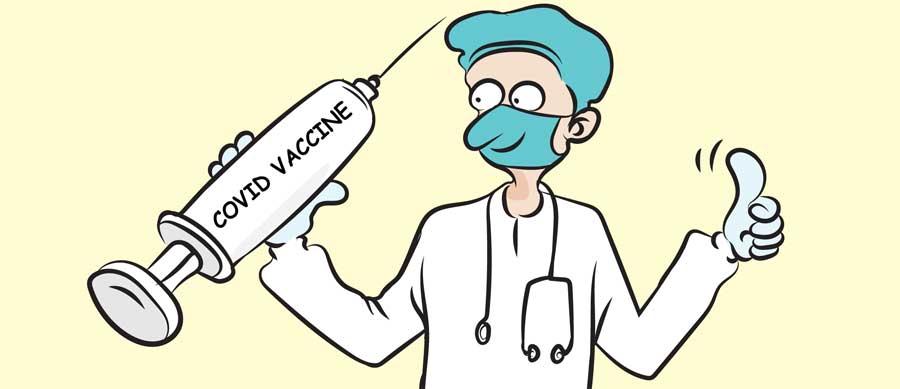Reply To:
Name - Reply Comment

Over the past year - from 2020 to date, the Covid virus held the world in an iron grip of fear and paralysis. Worldwide around 120 million people have fallen victim to the virus, 61 million have recovered and sadly around 2. 66 million have died of it.
Thanks to scientific break-throughs and mass inoculation programmes, today numbers are fast dropping. Suddenly, out of the blues during the past week there have been reports that one of the more popular and the more affordable vaccine Oxford-AstraZeneca - is having inimical side effects.
The rollout of the AstraZeneca vaccine has been halted in many European countries ranging from Germany, Italy, France, Spain, Denmark, Norway, and The Netherlands among others. Sweden and Latvia became the latest countries to stop the rollout of the vaccine in their country. The halt perhaps temporary was caused by isolated cases of bleeding, blood clots and low platelet counts in some persons who received the
AstraZeneca vaccine.
In Sri Lanka, the AstraZeneca vaccine is being used to combat the COVID-19. Neither the UK nor the US have said they were not too concerned. However the World Health Organisation has appealed to countries not to pause the vaccination campaigns after a number of European countries and one Asian country stopped its rollout.
The ‘Guardian’ reports a small subset of Facebook users is reportedly responsible for the majority of content expressing or encouraging skepticism about COVID-19 vaccines, according to early results from an internal Facebook study.
The study, first reported by the Washington Post, confirms what researchers have long argued about how the echo chamber effect can amplify certain beliefs within social media communities. It also shows how speech that falls short of outright misinformation about vaccines, which is banned on Facebook, can still contribute to vaccine hesitancy. Facebook’s research into vaccine hesitancy is part of an ongoing effort to aid public health campaigns during the pandemic.
Wednesday the World Health Organization (WHO) is meeting to review the available safety data on the vaccine, although it has repeatedly expressed confidence in its safety in recent days. The Head of the WHO, Tedros Adhanom Ghebreyesus has said there was no evidence of a link so far between the vaccine and the blood clots.
Al Jazeera reports to date more than 17 million people have received the vaccine in the United Kingdom and the European Union. The number of cases of blood clots as of last week was fever than 40 cases according to AstraZeneca, a British-Swedish multinational.
The World Health Organization, AstraZeneca, and the European Medicines Agency have insisted the shot is safe, and that there is no link between the vaccine and reported blood clots. The European Medicines Agency (EMA), Europe’s medicines regulator, will meet on Thursday to discuss the information gathered to decide whether the vaccine contributed to thrombo-embolic events in those inoculated.
While its investigation is ongoing, the EMA remains of the view that the benefits of the AstraZeneca vaccine in preventing COVID-19 outweigh the risks of possible side effects.
But in Europe, the reassurances appear to have done little to calm doubts in the countries which have suspended the vaccination campaigns in their countries.
In our own country medical specialists have not expressed an opinion one way or the other. Probably because it has confidence in the WHO which has at all times shared its knowledge promptly and acted in accordance with the information it was given by China and sharing it with medical and scientific experts
around the world.
It is good that instead of rushing in, ‘where angels dread to tread’ our doctors and the medical profession wait until they get more definite information